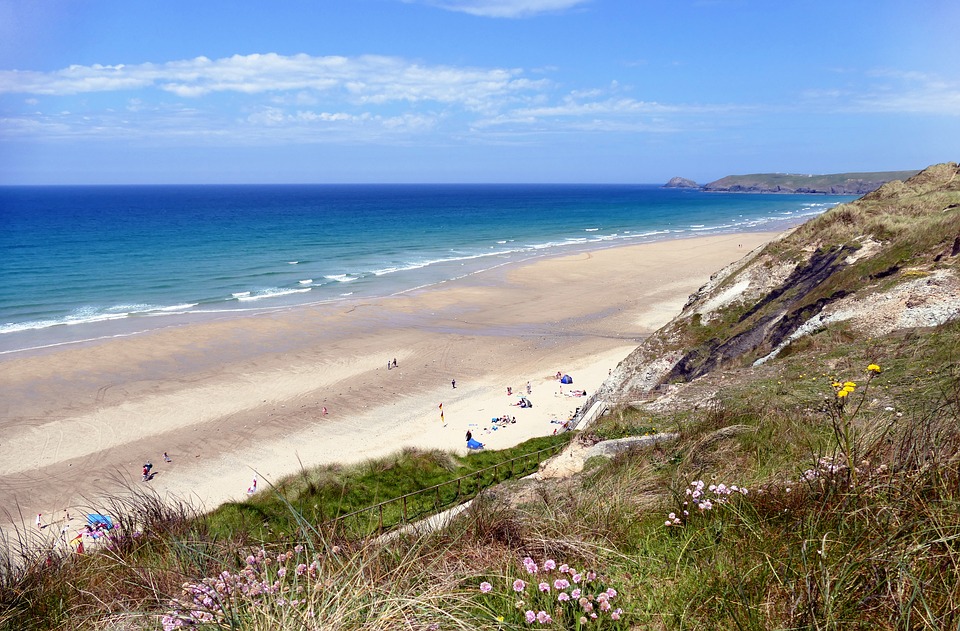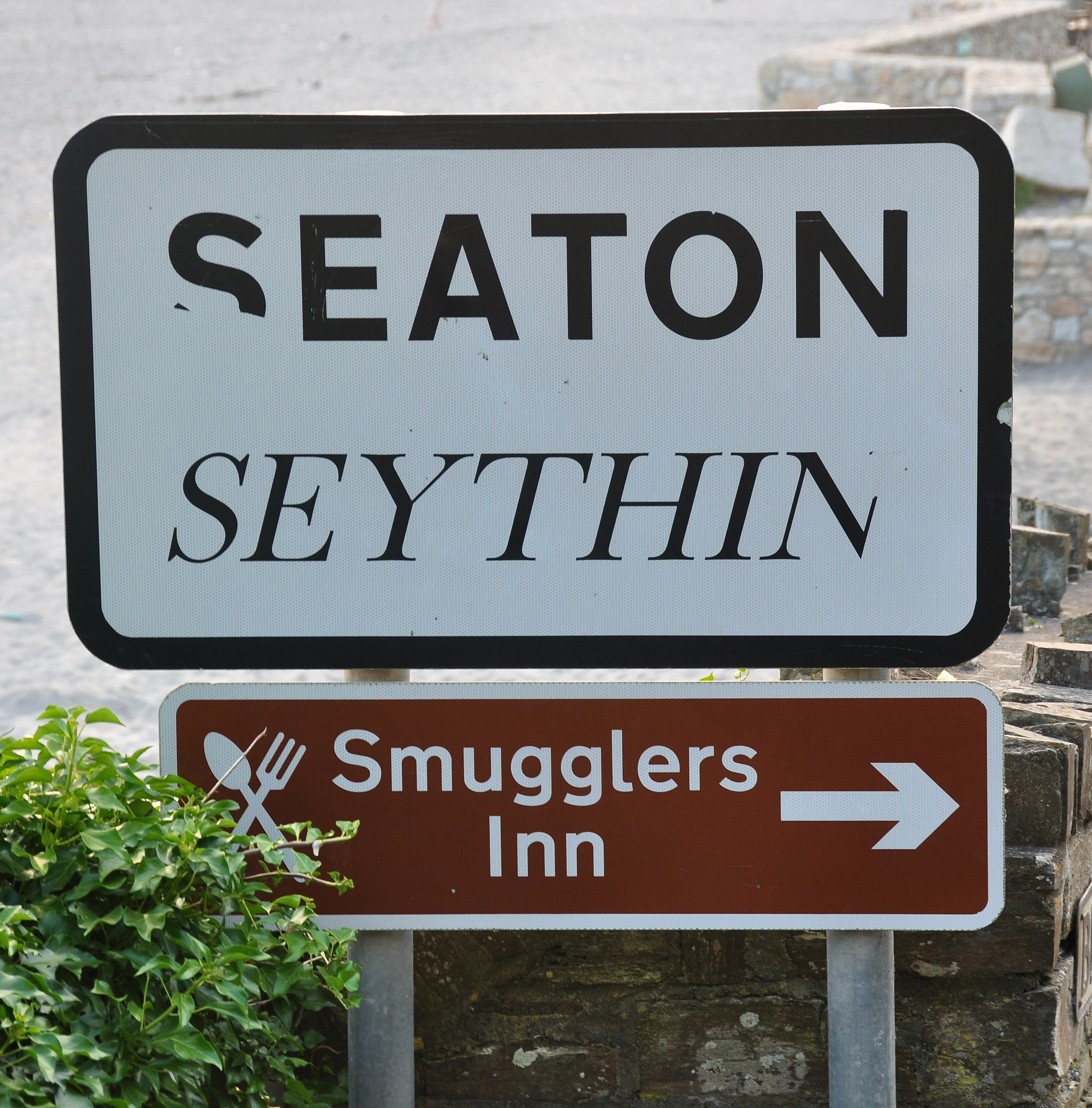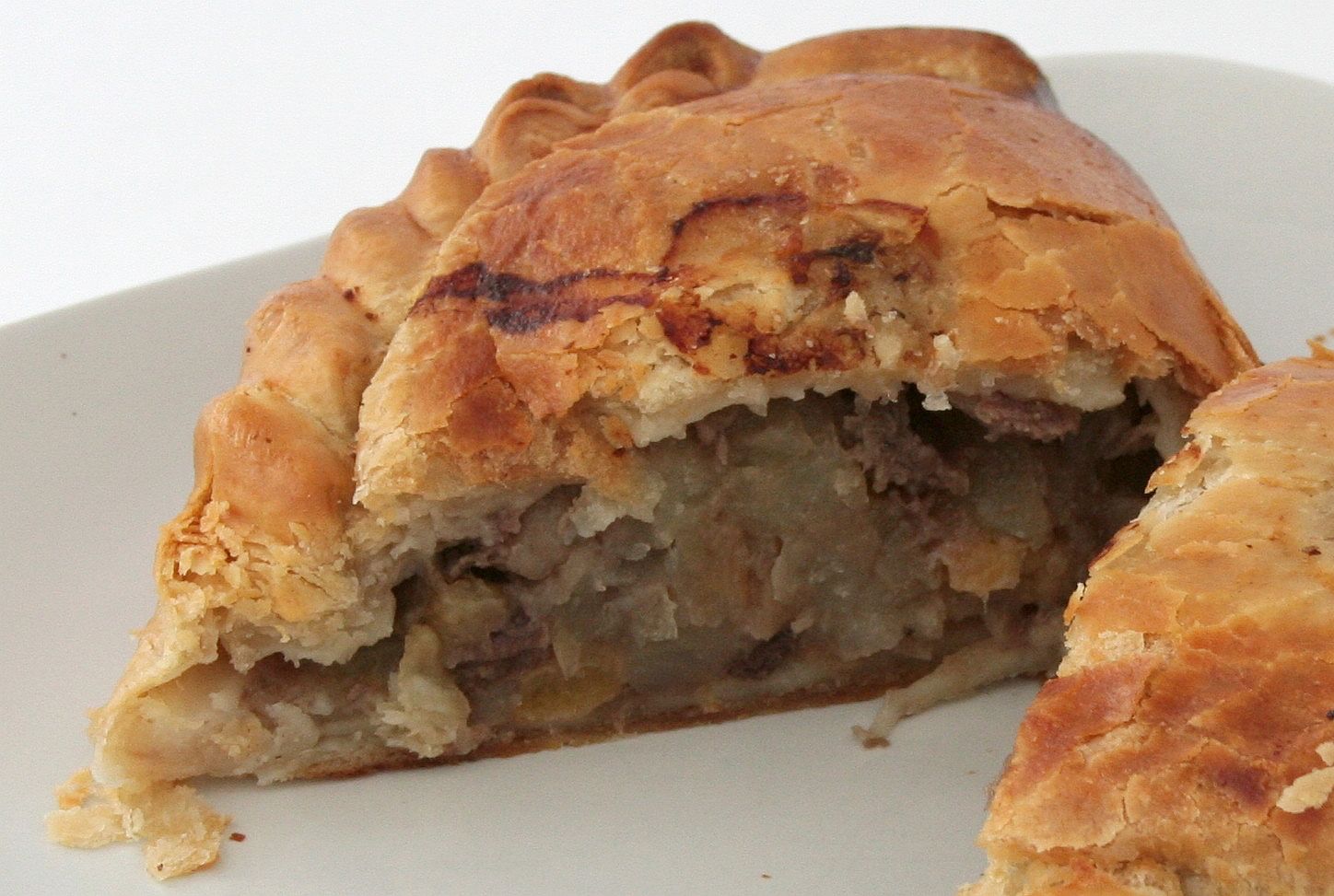Cornish: Greetings from the Southern English Coast!
When you think of Cornwall, chances are you might be thinking of the humble Cornish Pasty—even if technically they originate from Devon! But did you know that Cornwall, one of the most beautiful counties on the southwestern coast of England, also has its own language; one that is recognised as a minority language by the EU, and that the good people of Cornwall have long been campaigning for it to become official? Prepare for a Cornish education.
Photo of a Cornish Pasty via Wikimedia
Historically
Cornish was spoken by around 40,000 people, compared with the approximately 600 of today. It could be heard as far as Exeter, some 86 miles away—perhaps not all that impressive in distance, but effectively this meant Cornish was spoken across the entire southwestern tip of England at one point.
Cornish began to diverge from the Welsh language around the 7th century, and its earliest known written examples date back to the 9th—scribbles found in the margin of a Latin text! Cornish began to go extinct in the nineteenth century, and has seen a few attempts at rival since; first by scholar Henry Jenner, who discovered lines from a medieval Cornish play in a 14th century manuscript in the British Museum, and far more recently by various enthusiasts, including Celtic scholar Nicholas Williams, and Richard Gendall of the Cornish Language Council. The last Census saw 557 people officially listing this language as their main tongue.

Photo via Pixabay
The Basics
Cornish, also known as Curnoack and Kernowek, is an Indo-European language that occupies the southwestern branch of the Brittonic arm. It has a standard written form using the Latin alphabet, devised in 1995 by Nicholas Williams as the UCR—Unified Cornish Revised (Kernowek Unys Amendys). Its current language status according to the Ethnologue is reawakening, whereas UNESCO’s Atlas Of World Languages lists Cornish as critically endangered. Glass half full and all that.
Cornish phonology is fairly similar to all other Breton languages, though its grammar, along with other Celtic languages, is atypical of Indo-European languages in general—namely for initial consonant mutations, verb-subject-object word order, inflected prepositions (special combinations of prepositions and pronouns), fronting of emphasised syntactic elements, and two different forms for "to be".
Learning a new language? Check out our free placement test to see how your level measures up!
Cornish has gendered nouns, and those nouns are inflected to be quantified as more than one. Verbs are conjugated for tense and mood, and Cornish lacks verbs that are found in other languages; things like modals, and psych-verbs (such as hate, prefer, and like). There is no indefinite article, so porth can mean both ‘harbour’ and ‘a harbour’, though there is a definite article—an porth is ‘the harbour’.
There is a little mutual intelligibility between Cornish, Breton and Welsh, although there are various cognates that are shared between these three languages as well as Irish, Gaelic, and Manx:
Small — byghan (Cornish), bychan (Welsh)
High — ardd (Cornish), arth (Welsh)
Merry/merriment/fun — miri llawen (Cornish and Welsh)
Old — hen (Cornish and Welsh)
Today’s Cornish

Photo via Wikimedia
Cornish is taught in some schools, as well as in evening classes and online courses. Skol Veythrin Karenza, established in 2013 by Movyans Skolyow Meythrin—a not-for-profit organisation set up to spread the use of Cornish, is the first full-time Cornish language school with Ofsted registered status. There are also religious services, residential courses, children’s play groups, and self-help groups that are conducted solely in Cornish—some of which can be found as far away from Cornwall as London and Australia!
There is an increasing amount of literature available in Cornish, from textbooks and children's books to poetry and novels. Music and independent films solely in Cornish are also available and on the increase due to the rise in numbers of people wanting to learn the language.
Getting by
So how about a few essential phrases to get you started.
We think you’ll agree that Cornish is a beautiful language, and we hope you’re inspired to delve a little deeper into it—or to look into that language you’ve been meaning to but haven’t got around to yet!





